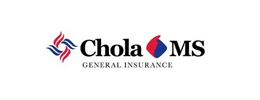What is Health Insurance?
In health insurance, a contract exists between you (the insured) and an insurance company (the insurer) whereby the insurer pays your medical bills in full or part thereof in exchange of a periodic premium paid by you.
What it does?
- Assists you in covering hospital expenses, surgical expenses, doctor visitation charges, prescriptions and medical tests etc.
- Provides cashless treatment at the network hospitals (you do not require to make a payment in advance; the insurance company pays the bill on your behalf).
- Saves you money in case of high and unexpected healthcare expenses.
How it works?
- You select the health insurance scheme and pay a premium (monthly, quarterly or annually).
- You claim in case you are ill or you require treatment that is paid by the policy.
- The hospital is reimbursed or the insurer pays directly (cashless) e.g. the hospital.
Why people get it?
- The medical expenses may be very expensive.
- Health insurance guarantees that you will have a chance to pay off treatment without clearing savings.
- It has also tax benefits in India under section 80D.
Example
In case you have a 10 lakh health cover and you require a 5 lakhs heart surgery, the insurer will take care of it (as per terms and conditions) and you are not hit in the pocket.
Key Features of India Health Insurance
- Cashless hospitalisation: There are over 12000 network hospitals where the patient can avail instant cashless treatment.
- Digital policies: The majority of the insurers offer convenient e-cards, web-based claims and paperless purchase.
- Tailor made plans: Now there are plans to suit the family, seniors, single, critical illness and even daily hospital cash.
- No Claim Bonus: 200 percent more sum insured on claim free years.
- Continuity Advantages: IRDAI has made the retail plans mandatory by making lifetime renewal.
- Tax benefits: You can avail an income tax deduction up to a limit of one lakh under Section 80 D on your health cover.
What Kind of Health Insurance Plans will there be in 2025?
The market in India in 2025 provides a broad portfolio of health insurance. Not only the basic hospitalisation is covered up by policies now, but OPD, mental health, maternity, and even wellness are covered up today.
What Kind of Health Policies Will be Available to Purchase in 2025?
- Individual Health Insurance: Paying the insurance on behalf of an individual, it covers hospitalisation, surgery, pre-post hospitalisation, and day care among others.
- Family Floater Policies: It covers an entire family within the same umbrella. Suitable to young families.
- Senior Citizen Plans: Provides additional benefits such as offer domiciliary cover, high cover, periodical health check up etc.
- Critical Illness Policies: Single lump payment in case you are diagnosed with major problems like cancer, stroke, kidney failure etc.
- Top Up & Super Top Up: This is an add-on policy to add more of your sum assured without altering your base policy.
- Maternity and New-Born Cover: In majority of the plans maternity is being covered after a waiting period.
- Personal Accident Cover: Individual accident cover on disability, accidental death and hospital cash.
- Arogya Sanjeevani Plans: Standard scheme is prepared as per provisions of the IRDAI standards at affordable premiums and easy terms.
- OPD and Wellness Plans: This type of insurance covers visits to the doctor, a pharmacy and laboratory research, but not hospitalisation.
- Corona Kavach: Can be taken as standalone plan even in 2025 in the event of virus related hospitalization expenses.
beknown to you? According to the data of IRDAI, over 23 crore Indians purchased health insurance in the year 2024, which witnessed an increase of 27 per cent on an annual basis.
What is the Best Health Insurance Plan to Take in 2025?
There are many options of deciding on a health policy in 2025 which is confusing. The following are some of the factors to compare:
Before you purchase health insurance, what should you compare?
- Network Hospitals: Verify whether your choice of hospitals is contained in the network of the insurer so as to make the claims cashless.
- Sum Insured: 10 lakh cover must be taken on the family floats. The seniors need to choose Rs 5 lakh and above.
- Room Rent Limits: A policy, which does not limit room rent, is desirable so as to have a smooth admission.
- Waiting Periods: The lesser the waiting period the better in case of pre existing diseases, maternity and special cases.
- Daycare Coverage: At least 500 plus daycare procedures should be covered.
- Co-payment: In some elderly plans, there is 10-30 percent co-pay, and you have to decide then, according to your budget.
- Exclusions: Check items or services not covered such as dental, cosmetic or OPD in the majority of basic plans.
Comparison: The Most Important Health Insurance Plan Features 2025
| Standard Plan | Feature | Premium Plan | Senior Citizen Plan |
|---|---|---|---|
| Sum Insured (Rs) | 3-15 lakh | 10-50 lakh | 5-25 lakh |
| Age of entry | 18-65 | 18-70 | 60-80 |
| Network Hospitals | 6,000 | 10,000 and more | 8,000 and more |
| Room Rent Limits | Limits are mostly capped | No limit on capacity | Limits are sometimes capped |
| Waiting Period (PED) | 36 months | 24 months | 24-48 months |
| No Claim Bonus | 50 percent to 100 percent | 100 percent to 200 percent | 50 percent to 100 percent |
| Renewable | Lifelong | Lifelong | Lifelong |
Experts add that one must take the maximum sum insured you are able to afford and one must purchase health insurance early before the age of 40 because premiums increase after 40.
In India, who can be insured with health insurance 2025?
The majority of health insurance packages are accessible to anybody between 18-65 years. Younger kids are able to join family floaters at 3 months. Senior plans: These plans start at the age of 60 with no maximum age limit to renew these plans.
What You Need to Purchase Health Insurance in 2025?
- PAN Card or Aadhaar
- A Proof of address such as Voter ID or Passport
- Age certificate (Birth certificate, marksheet etc)
- Passport sized photo
- Report of medical tests (could be required beyond some ages or sum assured)
Other questions are asked by people:
Are the NRIs able to purchase health insurance to their parents in India?
NRIs are allowed to purchase health insurance online to cover parents or family members in India but the insured must be a resident. The payment may be done through international cards or through NRE accounts.
What are New IRDAI Guidelines of Health Insurance 2025?
In 2025, IRDAI (Insurance Regulatory and Development Authority of India) has declared a number of reforms to make health insurance less frequently and understandably.
What are the Largest Advances in this Year in Health Insurance Regulations?
- Lifelong renewal: No policy can be refused renewal based upon age or previous claims.
- Standardised Exclusions: The list of non covered treatments of each company is more or less similar, and you will be able to compare better.
- Quicker Claim Payment: The time to settle a claim is 30 days after which the insurers are supposed to pay interest.
- Pre-existing Disease Norms: The pre-preexisting condition norms are now mandatory to provide cover to all pre-existing conditions after a maximum period of 36 months with few exceptions.
- Portability: You may port your policy to any other insurer with benefits and this is beneficial particularly on claim free years as per IRDAI guidelines.
Did you Know? In 2025, insurance regulator IRDAI penalised a number of the insurers regarding failure to settle their claims within the prescribed time limits.
What Are the Ways of Filing a Claim and Receiving Benefits of Health Insurance?
In this year, claiming in health insurance will be completely digitalized in most plans. You may go cash free or reimbursement route.
How do Health Insurance Claims take place in 2025?
In case of Cashless Claims:
- Present your e-Health Card at hospital in network.
- Hospital completes on-line pre authorisation form and forwards to insurer.
- Insurer is approved in 2 to 6 hours.
- Take medication and unwind. Insurer pays directly on bills.
For Reimbursement:
- Cover all costs in any hospital.
- Claimant can upload image of bills, discharge summary, proof of ID and policy to insurer via app or web.
- Claim takes 7 to 15 days to process, money is deposited to the bank account.
People also ask
What will occur in the case that my claim is refused?
One may either complain to or appeal to the insurer grievance cell, the Insurance Ombudsman or even go to IRDAI in case of non-redress.
The practitioners are also encouraged to use cashless claims where possible since they are fast and do not involve the hassle of reimbursement claims.
How will you do it in 2025 online and purchase health insurance?
In India, in 2025, the purchase of health insurance is mainly online. The digital brokers such as the web platform, Fincover.com and apps provided by individual insurers simplify the process and make it transparent.
How do I Go about Purchasing Online a Health Policy Step by Step?
- Compare: Compare the plans of all the major companies by using such websites as Fincover.com.
- Customise: Select age, city, requirements; select add ons such as critical illness, maternity cover etc.
- Compare quotes: Find premiums, benefits and see the network of hospitals and then choose the most appropriate policy.
- Fill form: Provide your name, contact and some health information.
- Upload Documents: Aadhaar, PAN, photo, and medical tests in case of a need.
- Pay Online: Pay immediately by using UPI, card, internet bank.
- Get e-Policy: Your policy will come to you in the form of an email in minutes. Claiming with the e-card is done instantaneously.
Pro Tip: Never lie about pre existing conditions. Claim rejection may occur in case of non-disclosure.
You know what? Industry research indicates that more than 65 percent of all retail health insurance policies were also sold without any paperwork in 2024.
The other questions asked by people are:
Is it possible to purchase the health insurance without physicals?
Yes, till to some age group, and amount of sum insured, tests are not required. However, tests can be necessary in case of high cover (Rs 10 lakh or more) or more than 55 years.
What is and is Not Covered With Health Insurance in the Year 2025?
Hospitalisation is usually covered by most policies whether by illness, injury and surgery however not all expenses are covered.
What is Covered and Not Covered Under Health Plan?
Covered:
- Charges of rooms in hospital and ICU fees
- Doctors costs and specialists attendance
- The expenses of operation theatre and anaesthesia
- Medication and consumables in hospital stay
- X rays, diagnostics and scans on admission
- Pre and post hospitalisation (typically, 30 and 60 days respectively)
- 500 or more day care processes, e.g. dialysis, chemo, laser surgery
- Ambulance charges
- Home hospitalisation (home)
- AYUSH treatment provided in registered institutions
Not Covered:
- Dental, hearing aids and spectacles
- Cosmetic or infertility surgeries
- OPD visits (except add-on chosen)
- Self harm and problems with substance abuse
- Non medical stuff such as attendant food, gloves etc.
Does health insurance include maternity?
Indeed, the majority of family plans presently have maternity cover with a waiting period, which includes coverage of newborn baby but with conditions.
Medical professionals advise their patients never to skip a glance of the policy literature such as brochures on coverage so as not to be surprised at the time of claim.
Which are Some of the Health Insurance Companies in India 2025?
India now has about 30 general and standalone health insurance providers and a number of digital-only insurers.
Which are the Best Health Insurance Plans in 2025?
The leading players are as per the service, claim settlement, features and customer feedback as follows:
- HDFC ERGO Health
- Star Health Insurance
- Niva Bupa (Max Bupa)
- ICICI Lombard
- Care Health Insurance
- Tata AIG
- Aditya Birla Health
- Bajaj Allianz General Insurance
- SBI health insurance
- Reliance Health Insurance
Most of these firms provide a complete digital customer support, AI claim tracking, tele-consultations, and fitness rewards.
Are schemes of government such as Ayushman Bharat relevant?
Yes, Ayushman Bharat PMJAY is still going on in 2025, which will cover up to Rs 5 lakh to people who are poor and vulnerable, and it is valid at the empanelled hospitals.
And you did know? According to a 2025 survey conducted by the Indian Health Federation, the purchase of the health insurance by individuals is far ahead of government schemes, especially in urban India.
What has happened to the health insurance premium in 2025?
As healthcare has become inflationary, premiums have been increasing; however, with the greater competition, basic plans have remained stable.
What Will Be Health Insurance Cost in India 2025?
- 25-35 years old (Person): Rs 5000-8000 per annum 5 lakh cover
- Family Floater (2A 2C, 10L cover): Rs 15000-22000/ year
- Senior Citizen (65plus, 5L cover): 20,000-35,000/ year
- Add on: Critical Illness cover: Additional Rs 3000 to 8000
- Maternity+ newborn add on: an additional 4000-9000
Premiums are different according to the city you live in, pre existing disease cover and sum insured.
Table 2025 Snapshot Health Insurance Premiums
| Age Group | Sum Insured | Approx Anual Premium |
|---|---|---|
| Zero | 25 years 5 lakh | Rs 5000 |
| 35 years | 10 Lakh | Rs 8500 |
| 2A 2C Family | 10 lakh | Rs 18,000 |
| 60 and more (Senior) | Rs 5 lakhs | Rs 24,000 |
Another question people say is:
Will I be allowed to divide health premium to be able to claim tax on my side and parents?
Yes. In case of payment of the premium on each policy, you are able to make 80D deductions on self, family and parents.
What is Future of health insurance in India?
Health insurance to all begins in the year 2025. The coverage of India has already passed the 700 million people and further innovations will be explored soon.
Which Trends of Health Insurance Will We See in the Future?
- Personalisation: Artificial intelligence-based plans that evolve with you over time, or according to your needs.
- Wellness Rewards: Insurers provide premium discounts in case you walk, practice yoga, use health bands, and have healthy habits.
- Telemedicine: All major plans come with free video doctor calls.
- Integrated Health Platforms: Policies which integrate pharmacy, diagnostic, consultation, fitness and hospitalisation into a digital solution.
- Micro Insurance: Top ups, hourly hospital cover and OPD vouchers of gig workers and freelancers.
- Regulatory Upgrades: More measures by IRDAI toward standardisation of products and introduction of mental health and OPD care as part of base plans.
Industry Perspective: The industry experts forecast that by 2030, 90 percent of the Indian population will enjoy some kind of health insurance.
In Short: TLDR
- The need to do health insurance in India in 2025 is because of increasing medical expenses and lifestyle related diseases.
- Choose Individual, family floaters, senior, critical illness, OPD and digital first health plans.
- There should always be a comparison on the sum insured, and waiting days, co-payment and hospitals on the network.
- The process of the purchase and submission of a claim is cashless and conducted using the digital transaction.
- Follow the new IRDAI regulations to get best out of your claim.
- Details on how to compare, and online check and apply, can be viewed on Check Fincover.com.
- Under Section 80D tax reimbursement to Rs 1 lakh.
- Coverage, policy premium, add-ons and list of the best insurers revised to 2025.
People also ask (FAQs)
Q: What is the time after I have purchased health insurance to utilize it?
A: Accident claims start on the following day where diseases tend to have a delay of 30 days. The waiting period of pre existing diseases is plan specific.
Q: What happens when I am victimised out of network?
A: You are entitled to claim as reimburse. Paying premium will be according to actual bills and policy conditions.
Q: Does it offer free yearly health check up in any of the plans?
A: Most of the plans now have annual health check up especially when you are claim free. Brochure of policy checking.
Q: Do I have the option of increasing the sum insured after few years?
A: Yes, most insurers give you the option of topping up or increasing at renewal stage provided one fills in the declaration and pays top premium.
Q: What is the meaning of portability in health insurance?
A: In renewal you can change your policy to any other insurer, carry forward the benefits of waiting period as per IRDAI.
Q: What can be done in case of delayed or denied claim?
A: He/she can/should call the customer care of the insurer or the grievance cell or he/she can go to Insurance Ombudsman/IRDAI.



















